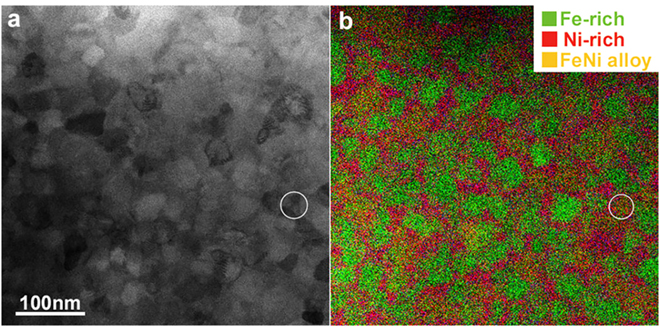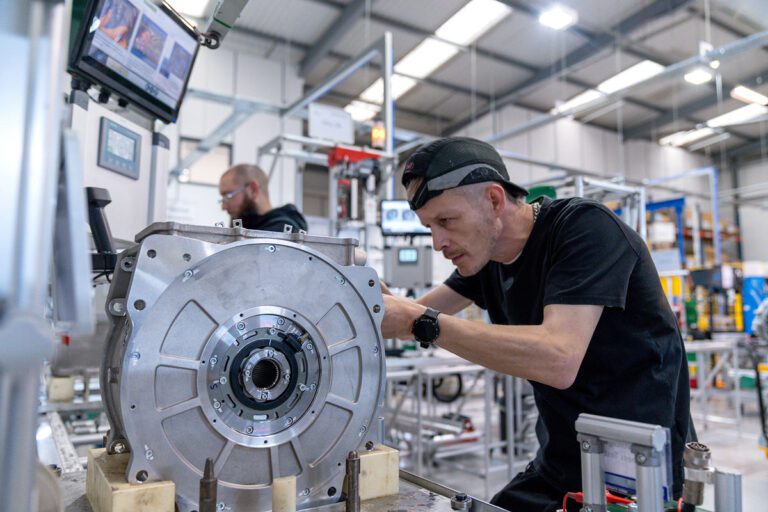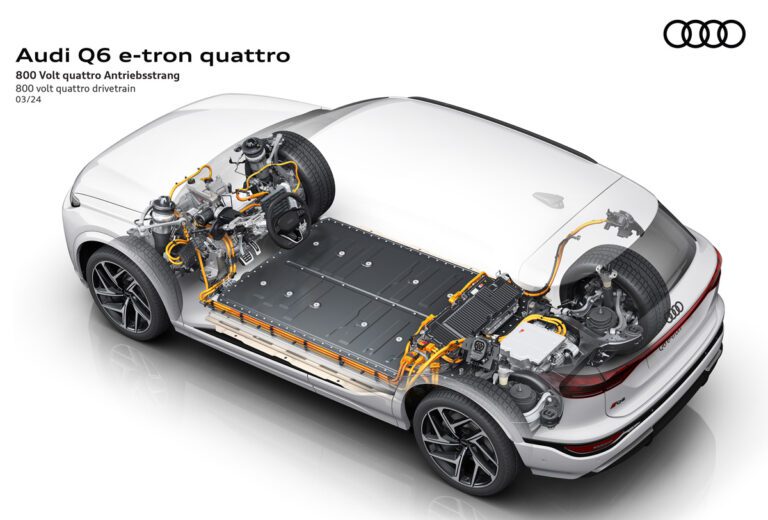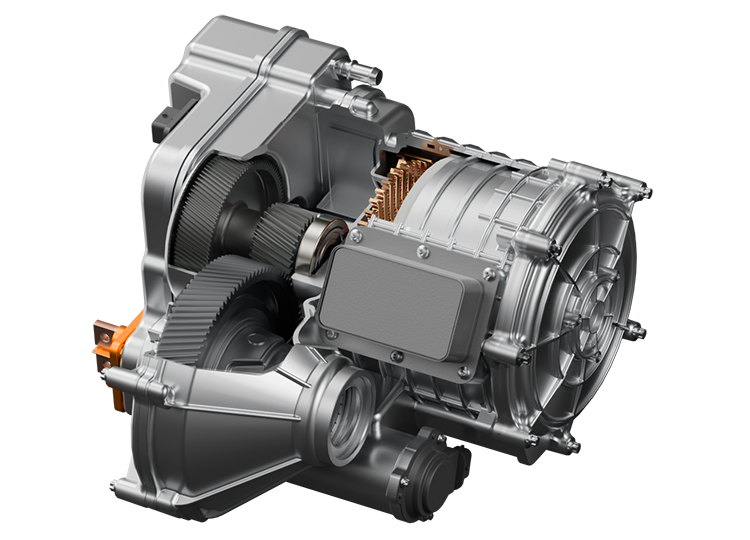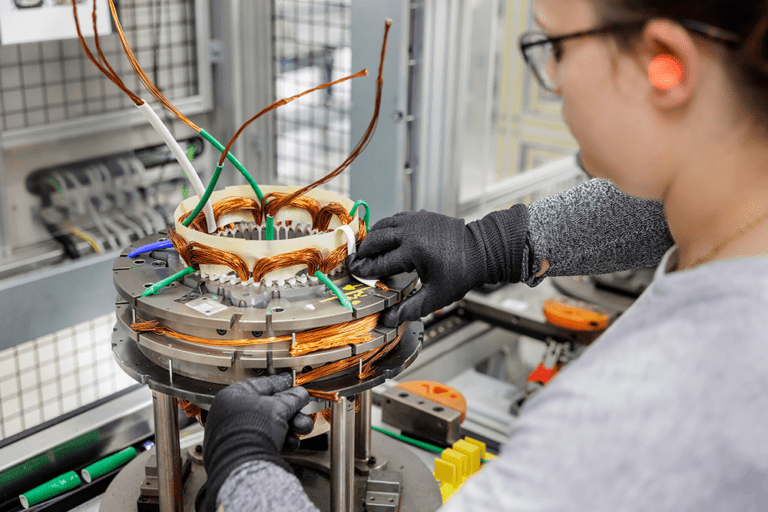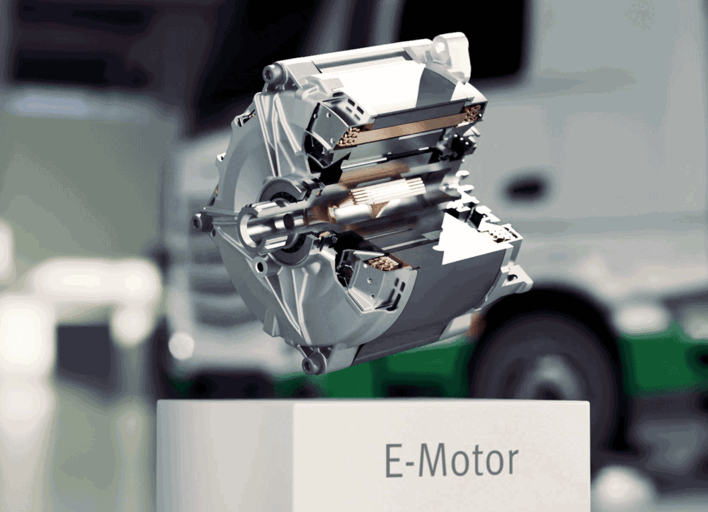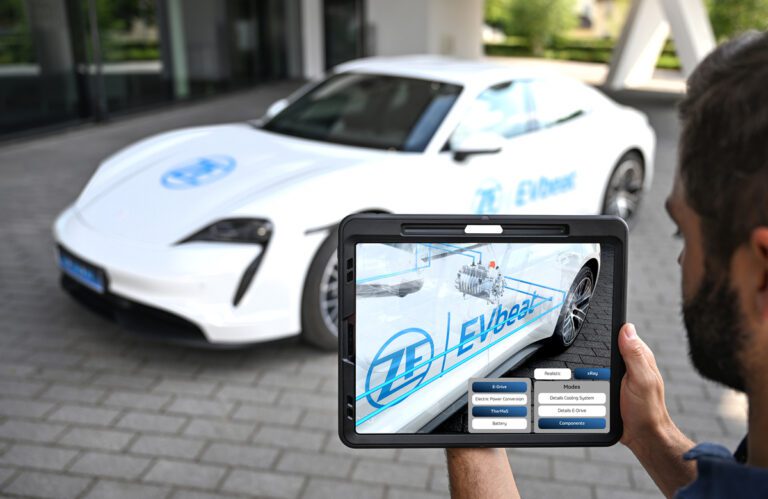High-performance magnets, which are critical for EV motors, typically depend on rare earth elements such as samarium, neodymium and dysprosium. These exotic materials are not only costly, but also present environmental and political challenges. Researchers from Tohoku University in Japan recently succeeded in producing a completely rare-earth-free high-quality magnet made of iron and nickel. The… Read more »
Search Results Found For: "rare earth"
AEM participates in electrification skills training program
Washington-based Advanced Electric Machines (AEM), which designs and manufactures sustainable electric motors and powertrain systems and was spun out of Newcastle University, is taking part in the Electrification Skills Training Program. AEM’s products are used in commercial vehicles, passenger cars, off-highway vehicles, trains and various industrial applications. The company put 25 of its employees through… Read more »
Audi debuts all-new electric drive architecture
Audi has unveiled a new all-electric drive architecture that it says offers greater efficiency and noticeably improved performance over its current platforms. The new Premium Platform Electric platform, designed in partnership with fellow Volkswagen Group brand Porsche, is intended to be the foundation of Audi’s EV strategy going forward. In developing PPE, Audi completely redesigned… Read more »
Magna unveils its next-generation 800 V eDrive solution
Magna has unveiled its next generation 800 V eDrive solution, which it says offers improved efficiency, power-to-weight ratio and torque density. Magna claims that its 75 kg next-generation eDrive is lighter, 20% shorter in height and faster than its prior generation eDrive, providing a longer driving range. Rotating the eDrive 90° around the drive axis… Read more »
Altilium works to transform mine tailings into valuable EV battery materials
UK-based clean technology group Altilium has secured over £700,000 in UK government funding for two collaborative research projects focused on the recovery of copper and rare earth elements (REE) from mine waste. Building on previous work to recover lithium and other battery materials from end-of-life EV batteries, Altilium is partnering with CPI and the Camborne… Read more »
Renault and Valeo develop new electric motor for EVs
Carmaker Renault and equipment manufacturer Valeo in France are collaborating to create a new electric motor generation. E7A, the third generation of this motor, is in the prototype stage and will debut in 2027. Renault is contributing the rotor and Valeo the stator, and both companies are providing technology development and production expertise. Renault plans… Read more »
Optimizing eMotors for Range, Cost and Sustainability
Sustainability is one of the fundamental features in electric motors. Whether it is a traditional PSM motor or advanced magnet free motor with powered rotor coils, Schaeffler focuses on optimal use of both the space and materials to achieve requirements without waste in the design. At Schaeffler, we use specialized tools for eMotor optimization –… Read more »
Optimizing electric motors for EV range, cost and sustainability (Webinar)
Sustainability is one of the fundamental features in electric motors. Whether it is a traditional PSM motor or advanced magnet-free motor with powered rotor coils, Schaeffler focuses on optimal use of both the space and materials to achieve requirements without waste in the design. The company uses specialized tools for eMotor optimization—looking at torque, power,… Read more »
ZF makes magnet-free electric motor
The permanent-magnet synchronous motor is the type of motor most frequently used in EVs, but it is based on magnets that require rare earth materials, which gives automakers an incentive to seek alternatives. As readers of Jeffrey Jenkins’s regular articles know, there are various other options, each with its own pros and cons regarding use… Read more »
ZF demonstrates new electric drivetrain and networked chassis technology
German automotive supplier ZF has developed a new thermal management system for EVs as part of its electromobility shift. Along with ZF’s optimized drivetrain, the new software “makes a significant contribution to higher efficiency,” according to the company. The new drive system is 30% lighter and can potentially boost winter vehicle range by up to… Read more »




